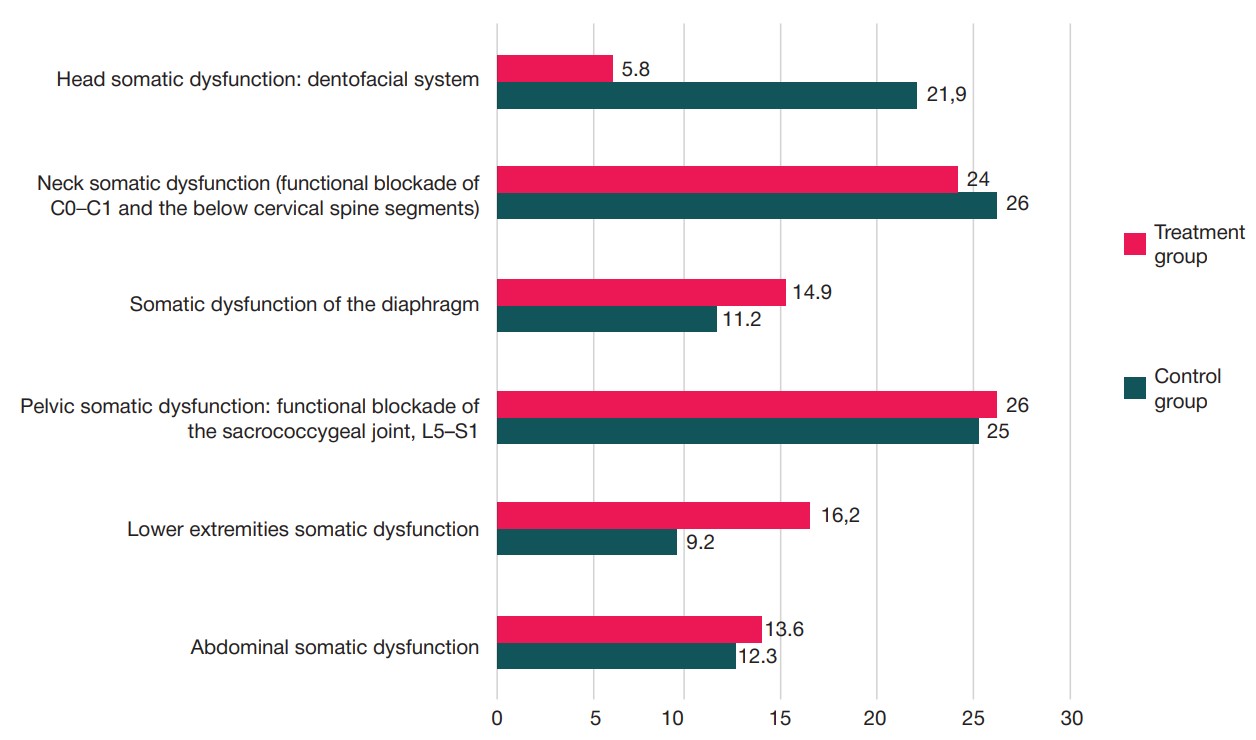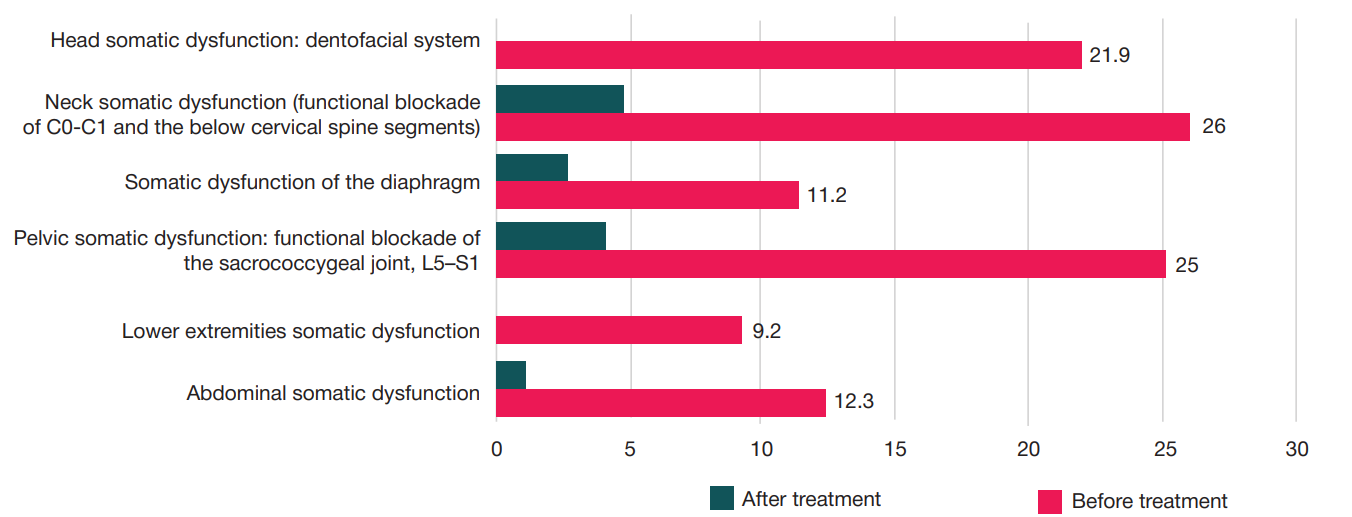
This article is an open access article distributed under the terms and conditions of the Creative Commons Attribution license (CC BY).
ORIGINAL RESEARCH
Interdisciplinary approach to orthodontic treatment involving an osteopath and a dentist (protocol)
1 Tyumen Institute of Manual Medicine, Tyumen, Russia
2 Tyumen State Medical University, Tyumen, Russia
3 Pirogov Russian National Research Medical University, Moscow, Russia
4 I.M. Sechenov First Moscow State Medical University (Sechenov University), Moscow, Russia
5 Samara State Medical University, Samara, Russia
Correspondence should be addressed: Igor A. Aptekar
Popova, 7a, Tyumen, 625048, Russia; ur.liam@27raketpa
Acknowledgements: authors thank Department of Restorative Dentistry of the Samara State Medical University for assistance in preparation of the materials and design of the manuscript.
Author contribution: Aptekar IA — study design and planning, literature analysis, data interpretation, manuscript authoring; Abramova EV — literature analysis, osteopathic data collection, data analysis and interpretation, manuscript authoring; Postnikov MA — editing; Kopetskiy IS, Postnikova EM, Poluianova EB — manuscript authoring; Eremin DA — analysis of the results; Aptekar VI, Muravyov IO — clinical trials, literature analysis, data interpretation, manuscript authoring.
Compliance with ethical standards: the study was approved by the Ethics Committee of the Research Centre for Medical Genetics (protocol № 4/2 dated 19 April 2021). The patients submitted the informed consent to participation in scientific research.


